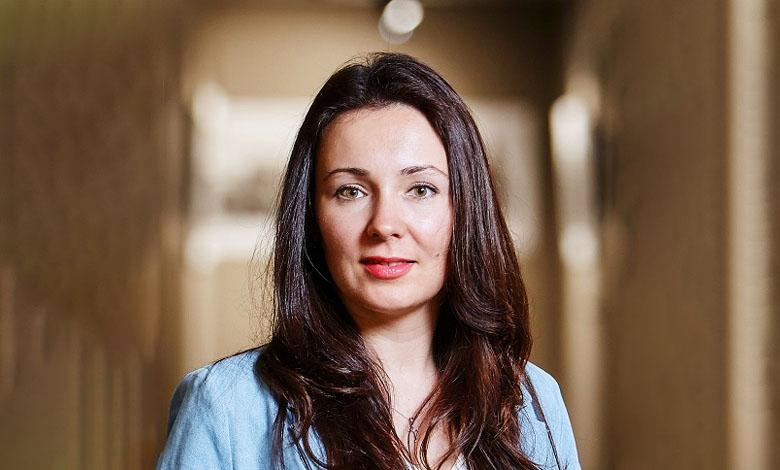The expert explained what problems the pharmaceutical market will face after the reduction in drug prices

In Ukraine, a decision was made to reduce the prices of medicines – a step that many citizens welcomed. Given the constant increase in the cost of medicines, such an initiative seemed necessary and long-awaited. The state aims to make drugs more accessible to everyone by introducing tight price controls, markup caps and new distribution rules. However, joy may turn out to be premature, because not all mechanisms of this regulation have been analyzed in detail, and the consequences may turn out to be much more complicated than it seems at first glance.
As notes Lana Sinichkina, partner and head of the Healthcare and Pharmaceutical practice of JSC “Artzinger”, the new legislative regulation, adopted in February 2025, actually creates a revolution in the rules of the game for all market participants. The problem is not only the speed of adoption of changes, but also that they are based on beliefs that do not have a proper economic justification.
As the expert emphasizes, it all started with the creation of a temporary investigative commission (TCC) chaired by Yulia Tymoshenko, which investigated the issue of prices for medical supplies for military personnel. Despite the lack of official conclusions regarding the real level of prices, statements about the excessive overestimation of the cost of medicines in comparison with European countries began to spread in the public space. At the same time, there are no analytical reports that would confirm this thesis, and data from Ukrainian research agencies indicate the opposite. However, the political wave picked up the topic, and active work began on legislative initiatives to strictly regulate the pharmaceutical market.
As Lana Sinichkina emphasizes, the issue of drug prices in Ukraine has always been politically sensitive, especially in pre-election periods. However, this time the regulatory intervention happened extremely quickly. Already on February 12, 2025, a law was passed that laid the foundation for the new rules. Immediately after that, the decision of the NSDC appeared, approved by presidential decree, and the government promptly made a number of changes to the by-laws.
The main conviction of the legislator was the idea that the prices of medicines in Ukraine are inflated due to abuse by pharmaceutical companies. As the expert explains, in particular, marketing and promotional services, which have been part of the business model of most market operators for a long time, were hit. Legislators decided that these services are the reason for the increase in drug prices, and introduced their temporary ban.
As Lana Sinichkina emphasizes, certain abuses in this area are really possible, as in any retail. It is difficult for large pharmacy chains to get on the shelves without additional payments, which are often framed as marketing services. However, this practice is not unique to Ukraine, but is characteristic of the entire European distribution system. Moreover, a simple regulatory restriction does not eliminate the very economic reason for such payments, which means that they may return in a different format.
According to the expert, one of the most controversial aspects of the new rules is that not only marketing services are banned, but also important social initiatives of pharmaceutical companies. We are talking about patient programs that reduced the cost of drugs and facilitated access to necessary drugs. From now on, such programs can simply stop.
Another controversial point was the legislator’s decision to prohibit the use of financial instruments – credit notes, discounts, bonuses, as well as retrospective adjustment of the purchase price. As Lana Sinichkina explains, such mechanisms are usually used to reduce the cost of medicines in the supply chain, and blocking them can lead to the opposite effect – an increase in the final price for the consumer.
However, the biggest risk for the market is the total price regulation of all medicines. From now on, the state limits trade markups on all medicines, and also introduces reference pricing, i.e. price comparison with other countries. As the expert emphasizes, a number of questions arise here: with which countries will the prices be compared, from which sources will the data be taken, and will differences in purchase volumes and payment terms be taken into account. If the reference is not adapted to the Ukrainian market, it may lead to the withdrawal of a number of drugs from circulation.
Also of concern is the so-called “20% in one hand” rule, which forces pharmaceutical manufacturers to work with at least five distributors. Legislators believe that this will help to overcome the monopoly in the distribution market, however, as Lana Sinichkina explains, such a model may turn out to be unsustainable. The country simply does not have a sufficient number of large distributors that could ensure the supply of medicines throughout Ukraine. As a result, there can be chaos in logistics, affecting the availability of medicines for patients.
“As a result of these innovations, financiers and accountants of companies will have a headache regarding the accounting of net income for each product item (follows from the legal norms regarding the calculation of the corresponding 20%) and the calculation of indicators in the current year – because the volumes of sales differ in each year, as well as the list of products and distributors with which the companies work.
There is still hope that state bodies will hear the concerns of experts and be able to partially settle them at the level of by-laws that are currently being developed. But considering that most of the bans come into effect already on March 1, businesses have almost no time to prepare for their implementation – even to simply stop certain activities, given their volume and the duration of the relevant operations in time.
Moreover, taking into account the established time limits, there is a doubt about the quality of discussions and justifications, as well as the weightedness of the formulations that are currently being worked out for the introduction of new norms. Violation of the normal course of public consultations, unfortunately, can lead to critical consequences not only for the economy, but also for the population of our country.” – summed up the expert.
Summarizing, the expert notes that the new rules of the pharmaceutical market have serious drawbacks. They can limit competition, complicate the work of manufacturers and distributors, and lead to reduced access to a number of important drugs. Is the state ready to take these risks into account and make adjustments to the regulation? So far, this is not visible, and therefore, March 1 may become a point of no return for the Ukrainian pharmaceutical market.





